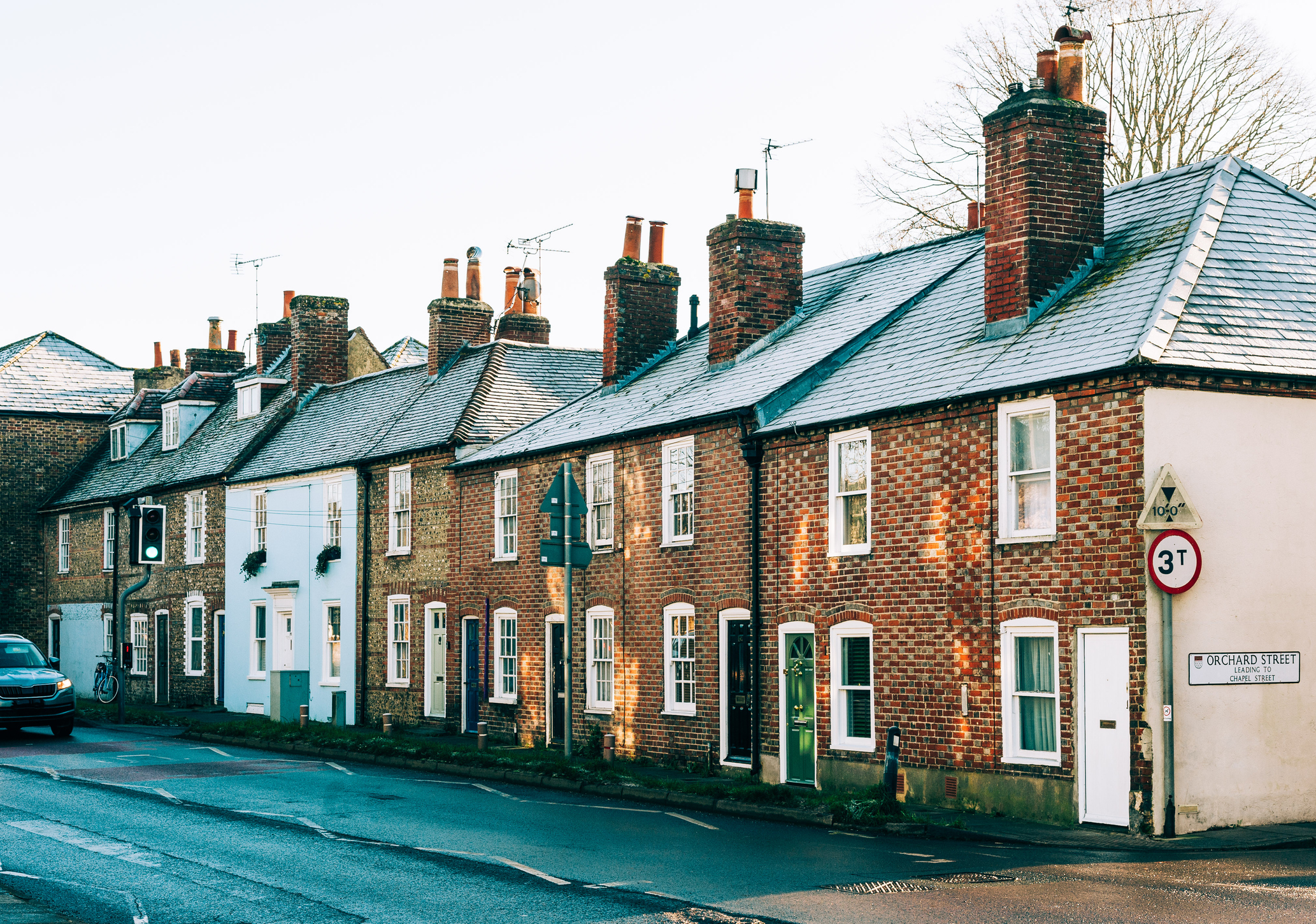The one thing that can pop the house price bubble
The Bank of England has made it clear that interest rates will rise before Christmas. And if there's one thing that can burst the house price bubble, says John Stepek, it's higher interest rates.


Get the latest financial news, insights and expert analysis from our award-winning MoneyWeek team, to help you understand what really matters when it comes to your finances.
You are now subscribed
Your newsletter sign-up was successful
Want to add more newsletters?

Twice daily
MoneyWeek
Get the latest financial news, insights and expert analysis from our award-winning MoneyWeek team, to help you understand what really matters when it comes to your finances.

Four times a week
Look After My Bills
Sign up to our free money-saving newsletter, filled with the latest news and expert advice to help you find the best tips and deals for managing your bills. Start saving today!
Tucked in amid the Budget documents last week was a note from the Office for Budget Responsibility (OBR) that might have made homeowners shiver. The OBR noted that inflation is rising (they’re sharp-eyed like that). It also noted that in a worst-case scenario, inflation might rise to as much as 5.4% (worst-case... hmmm...).
But, long story short, one thing that might mean is a rise in interest rates. And a rise in interest rates implies more costly mortgages. Which might just imply lower house prices.
Why interest rates matter so much to house prices
There have been a fair few headlines in the last few days worrying that rising interest rates could hit house prices in the UK. What with the Bank of England all but declaring that rates will rise from their current 0.1% before Christmas, and markets getting more worried about inflation, it’s no surprise that people are a little concerned.
MoneyWeek
Subscribe to MoneyWeek today and get your first six magazine issues absolutely FREE

Sign up to Money Morning
Don't miss the latest investment and personal finances news, market analysis, plus money-saving tips with our free twice-daily newsletter
Don't miss the latest investment and personal finances news, market analysis, plus money-saving tips with our free twice-daily newsletter
According to FT Adviser, September is expected to mark the low point for this mortgage cycle (with an average rate of 1.78% on new mortgages). In October, “more and more lenders started hiking their rates”.
So is this it? House-price crash time?
To be very clear, I don’t think there should be any doubt about one specific thing here: the one thing that can puncture the house price bubble (or boom, or whatever you want to call it) is higher interest rates. We’ve been through the logic of this plenty of times, but let’s do it again, because some people still don’t really seem to grasp this.
Most people buy homes using a mortgage, not cash. So the most salient point is not the absolute house price, it’s the monthly payment. So people don’t really care about the absolute house price – whether it’s £100,000 or £250,000 or whatever – they just care about what £400 or £1,000 a month or whatever will buy them right now. I mean, they might moan about the absolute house price, or gawk at how high it is, but when it comes down to it, all that matters is the monthly cost.
When the cost of borrowing (the interest rate on your mortgage) goes down, the amount you can borrow in exchange for a given monthly interest payment goes up. When the interest rate on your mortgage goes up, the amount you can borrow in exchange for a given monthly payment goes down.
So you can see why interest rates matter so much. Let’s assume a 25-year repayment mortgage. If you have £1,000 a month to spend, then at an interest rate of 3.5%, you can borrow £200,000. But if that rate goes up to 1.5%, you can borrow £250,000. If it jumps to 5.5% you can only borrow £165,000.
You can also see why this makes physical supply and demand so much less relevant to price movements. Over time, physical supply and demand will matter somewhat to prices, but if the Bank of England jacked up interest rates to 8% overnight, prices would collapse within a month, for very obvious reasons.
This is a mild oversimplification. Mortgage availability is very important too. Interest rates can be low, but banks can be reluctant to lend, as we saw in the immediate aftermath of the financial crisis. However, mortgage lending tends to be pro-cyclical. In other words, it’s harder to get a mortgage when house prices have fallen, but it gets easier as prices keep rising, and banks become ever keener to grab more business (which we’re seeing right now).
Anyway, that should make it clear why interest rates matter. The only real question is: will rates go up that sharply?
Financial repression suggests interest rates won’t rise that much
This is where I struggle a little. The fundamental problem for both financial markets and the “real” economy right now is debt. There’s too much of it. In particular, there’s too much government debt.
The easiest way for governments to repay that debt is by allowing inflation to rise faster than interest rates. That’s called “financial repression”. This suggests that while the Bank of England will talk aggressively, it will only carry a small stick. (Bear in mind that the OBR’s central forecast is for rates to rise to 0.75%, which is not a lot).
This doesn’t mean that rates will stay exactly where they are now. But it does imply somewhat that rates will not rise to the point where they cause a house price crash. Not imminently anyway. Banks in particular are at the stage in the cycle where they compete for business so they’re going to be reluctant to go too wild in terms of raising rates.
There will come a day when the political cost of inflation is higher than the political cost of recession (the last time that happened was in the early 1980s), but it is not this day.
That said, if you haven’t checked your mortgage rate in a while and you’re in position to change or lock in a longer fix without paying too much more (indeed you might find you can still pay less depending on when you last changed) it’s definitely worth doing. I imagine most of you are on top of that anyway – but if you’re not, do take a look.
Meanwhile, subscribe to MoneyWeek magazine – financial repression is going to be a big story this decade and you’ll want to make sure you’ve positioned your portfolio for it. You can get your first six issues free here.
Get the latest financial news, insights and expert analysis from our award-winning MoneyWeek team, to help you understand what really matters when it comes to your finances.

-
 Should you buy an active ETF?
Should you buy an active ETF?ETFs are often mischaracterised as passive products, but they can be a convenient way to add active management to your portfolio
-
 Power up your pension before 5 April – easy ways to save before the tax year end
Power up your pension before 5 April – easy ways to save before the tax year endWith the end of the tax year looming, pension savers currently have a window to review and maximise what’s going into their retirement funds – we look at how
-
 Halifax: House price slump continues as prices slide for the sixth consecutive month
Halifax: House price slump continues as prices slide for the sixth consecutive monthUK house prices fell again in September as buyers returned, but the slowdown was not as fast as anticipated, latest Halifax data shows. Where are house prices falling the most?
-
 Rents hit a record high - but is the opportunity for buy-to-let investors still strong?
Rents hit a record high - but is the opportunity for buy-to-let investors still strong?UK rent prices have hit a record high with the average hitting over £1,200 a month says Rightmove. Are there still opportunities in buy-to-let?
-
 Where to find the best returns from student accommodation
Where to find the best returns from student accommodationStudent accommodation can be a lucrative investment if you know where to look.
-
 Revealed: the cheapest cities to own a home in Britain
Revealed: the cheapest cities to own a home in BritainNew research reveals the cheapest cities to own a home, taking account of mortgage payments, utility bills and council tax
-
 Buy-to-let returns fall 59% amid higher mortgage rates
Buy-to-let returns fall 59% amid higher mortgage ratesBuy-to-let returns are slumping as the cost of borrowing spirals.
-
 North outperforming the South for property investors
North outperforming the South for property investorsThe property market in the North of England is outperforming the South for both capital appreciation and rental yields.
-
 UK house prices: half of sellers cut asking prices to secure a sale
UK house prices: half of sellers cut asking prices to secure a saleProperty price reductions have reached their highest level in at least nine years.
-
 Halifax: House prices fall for the fourth month in a row
Halifax: House prices fall for the fourth month in a rowHigher interest rates have wiped nearly £1,000 off the average UK house price between June and July.